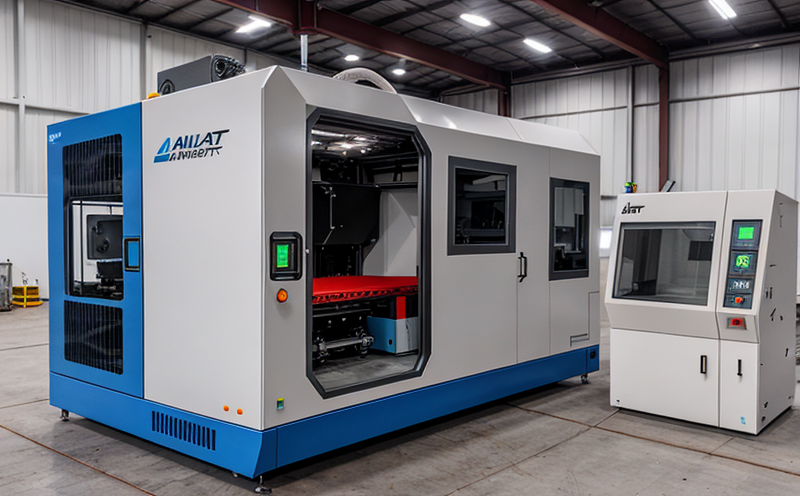ASTM F3421 Powder Reuse Testing in Additive Manufacturing
The advent of additive manufacturing (AM) has revolutionized industrial manufacturing processes by enabling on-demand production and reducing waste. However, the reprocessing of unused powder is a critical aspect that ensures sustainable practices, cost-effectiveness, and product quality. ASTM F3421-20 standard provides comprehensive protocols for the testing of powder reuse in AM processes to ensure compliance with safety and performance requirements.
This service focuses on conducting ASTM F3421-20 powder reuse tests, which are crucial for quality assurance in industrial manufacturing environments. The process involves several key steps including sample preparation, mechanical testing, chemical analysis, and evaluation of the reprocessed powder's suitability for further additive manufacturing processes.
Our experienced technical team follows stringent ASTM F3421-20 guidelines to conduct these tests. This includes ensuring that the reused powders meet all required specifications before being reintroduced into the AM cycle. By adhering strictly to this standard, we help our clients maintain high standards of quality while promoting sustainable manufacturing practices.
The importance of ASTM F3421-20 cannot be overstated as it addresses a critical aspect of powder management in AM environments. The test procedures outlined by this standard are designed to ensure that reprocessed powders do not compromise the integrity or performance of final products. This is particularly important given the increasing emphasis on reducing waste and improving resource efficiency within manufacturing industries.
Our service offers a full suite of testing capabilities tailored specifically towards ASTM F3421-20 standards. We employ state-of-the-art equipment and methodologies to provide accurate, reliable results that meet the stringent requirements set forth by this standard. Our team is equipped with extensive knowledge in both AM processes and powder metallurgy, ensuring that every test we perform adheres strictly to the specified guidelines.
In addition to providing detailed reports based on our findings, we also offer consulting services aimed at helping clients optimize their powder reuse practices within an AM framework. By leveraging our expertise, manufacturers can enhance productivity, reduce costs, and minimize environmental impact—all key objectives in today's competitive manufacturing landscape.
Through rigorous adherence to ASTM F3421-20 standards, we ensure that reprocessed powders are safe for use in subsequent additive manufacturing cycles. This not only enhances product quality but also contributes significantly towards sustainable manufacturing practices. Our commitment to excellence and precision makes us a trusted partner for industries reliant on advanced AM technologies.
Our service plays an integral role in maintaining the integrity of materials used throughout the entire lifecycle of additive manufacturing projects. By offering ASTM F3421-20 powder reuse testing, we provide assurance that reprocessed powders meet all necessary requirements set forth by recognized standards bodies like ASTM International.
In summary, our service offers a comprehensive approach to ASTM F3421-20 powder reuse testing in additive manufacturing processes. With our expertise and commitment to quality, we help ensure that reprocessed powders are safe for continued use while supporting sustainable manufacturing practices.
Benefits
- Enhanced Product Quality: Ensures that reprocessed powders do not compromise product integrity or performance.
- Sustainable Manufacturing Practices: Supports sustainable manufacturing processes by minimizing waste and reducing environmental impact.
- Cost Efficiency: Helps manufacturers optimize their powder reuse practices, thereby enhancing productivity and reducing costs.
The benefits of conducting ASTM F3421-20 powder reuse testing extend beyond just meeting regulatory requirements; they also contribute significantly towards building a more sustainable future. By ensuring that reprocessed powders meet all necessary quality standards, manufacturers can enhance product reliability and safety while simultaneously reducing their carbon footprint.
Quality and Reliability Assurance
The importance of ASTM F3421-20 cannot be overstated as it addresses a critical aspect of powder management in AM environments. The test procedures outlined by this standard are designed to ensure that reprocessed powders do not compromise the integrity or performance of final products.
Our service ensures strict adherence to ASTM F3421-20 standards, providing clients with peace of mind knowing their reprocessed powders meet all necessary specifications. This is particularly important given the increasing emphasis on reducing waste and improving resource efficiency within manufacturing industries.
We employ rigorous quality control measures throughout our testing process to ensure accurate results that can be trusted by both internal teams and external stakeholders. Our commitment to excellence and precision makes us a reliable partner for any organization looking to implement sustainable practices in their AM processes.
International Acceptance and Recognition
The ASTM F3421-20 standard is widely accepted internationally as a benchmark for powder reuse testing in additive manufacturing environments. This ensures that results obtained from our service are recognized across different regions and countries, facilitating smoother collaboration between various stakeholders involved in AM projects.
By adhering strictly to this standard, we help clients gain international acceptance and recognition for their reprocessed powders. This is particularly valuable when working with global partners or suppliers who may have specific requirements regarding material quality and safety.
Frequently Asked Questions
- Enhanced Product Quality: Ensures that reprocessed powders do not compromise product integrity or performance.
- Sustainable Manufacturing Practices: Supports sustainable manufacturing processes by minimizing waste and reducing environmental impact.
- Cost Efficiency: Helps manufacturers optimize their powder reuse practices, thereby enhancing productivity and reducing costs.





